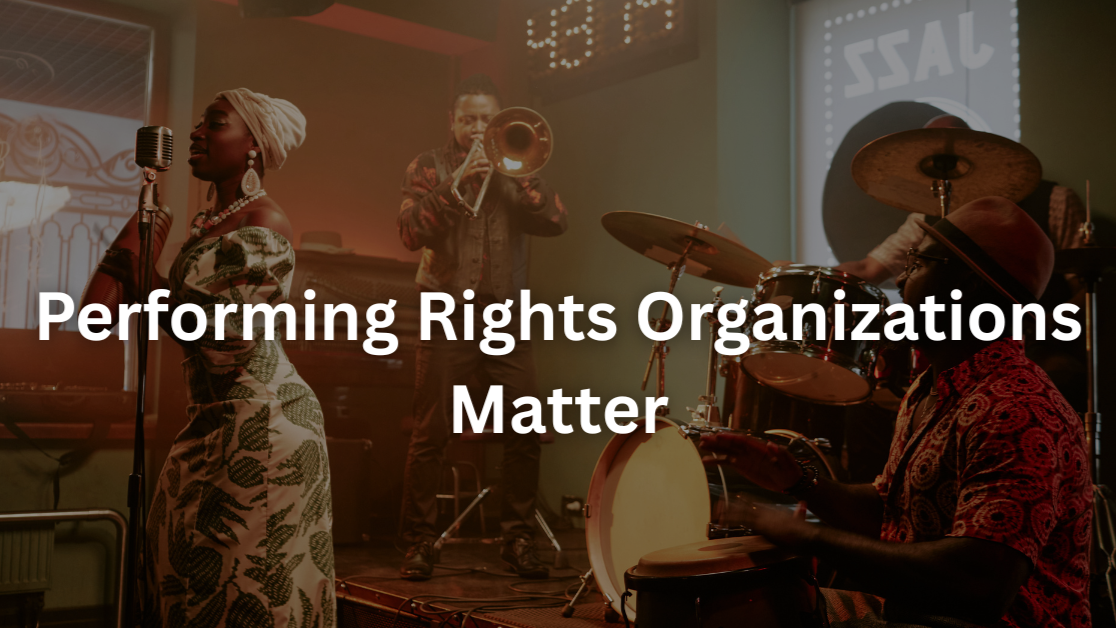
Performing Rights Organizations Matter
Music enhances our lives in countless ways - at home, at work, in the gym, and on screen. In fact, 87% of Americans say music is an essential part of their daily routine.
90% are more likely to enjoy a bar or restaurant that plays music. 83% say music improves their gym experience. 77% say the same about shopping. And 100%, yes, 100% agree that music enhances their favorite TV programs.
But behind every song you hear in these spaces is a system ensuring creators are fairly paid. That's where Performing Rights Organizations (PROs) come in.
U.S. copyright law requires that when music is publicly performed, the composer and music publisher must be paid. A "public performance" can mean:
- A TV or radio broadcast
- A concert or DJ set
- Music playing in your favorite gym, retail store, or restaurant
This compensation is crucial. It allows composers to keep creating the music we all love.
Performing Rights Organizations (PROs) like ASCAP, BMI, and SESAC issue licenses to broadcasters and venues, allowing them to legally play music. These PROs then collect the licensing fees and distribute royalties to the appropriate composers and publishers.
In the U.S. a composer may only affiliate with one PRO. However, a company can have multiple publishing entities, each affiliated with different PROs.
For Example:
- A composer signed with ASCAP must be published by an ASCAP publisher.
- In a co-write between an ASCAP and BMI composer, both an ASCAP and BMI publisher must be assigned.
So how are all these performances tracked?
It may sound daunting, but thanks to technology and reporting systems, it's entirely possible.
Here's how it works:
- TV Shows: Submit cue sheets that list every piece of music used.
- Radio Stations: Report their music logs.
- Live Venues: Provide set lists from performances.
- Digital Tracking: PROs also use audio fingerprinting and monitoring tech through 3rd party services to identify music played on streaming, broadcast, and digital platforms.
Royalty payments are typically distributed about three quarters after the performance takes place.
Composers and publishers have 12 months to dispute or investigate royalty issues with their PRO.
Trying to manage a large catalog, handle registrations, cue sheets, and global collections can be overwhelming. That's where publishing administration services come in.
A publishing administrator will handle:
- Song registration with domestic and international PROs
- Cue sheet submissions globally
- Statement analysis and royalty collections across territories.
While I have focused here on U.S. based PROs, it's important to remember every country has its own performing rights organization. This means that music played anywhere in the world can generate royalties for its creators.
Every song matters. Every composition has value.
Just imagine a world without music. It's unthinkable. That's why supporting artists isn't just important - it's essential.
#MusicRights #CopyrightLaw #MusicIndustry #PerformingRights #MusicLicensing #Royalties
Ryan Neil, CEO
May 19, 2025